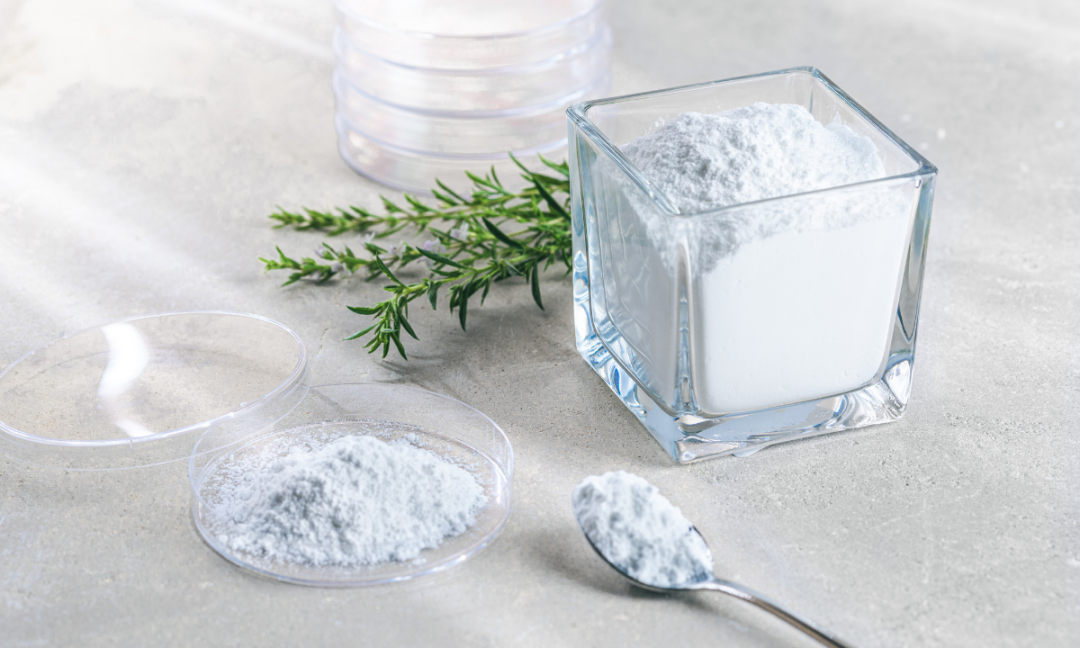
Is lactose a prebiotic?
More and more studies are showing that the microbiome plays a crucial role in intestinal balance8. Over the last few years, it has become a major concern for consumers, as is demonstrated by the considerable number of publications on the subject. According to a recent study by Mintel, nearly three out of five American adults are trying to eat in a way that supports the development of a healthy microbiome1.
It is in this context that products that regulate the composition of the gut flora, known as prebiotics2, have been developed. To date, some lactose by-products (such as HMO, GOS, FOS*) are already considered as prebiotics, but what about lactose itself?
The importance of the gut microbiome
The gut microbiome is a complex ecosystem of all the single-cell organisms that live in the digestive tract, mainly bacteria but also viruses, fungi, and archaea**.
Gut flora consists of thousands of types of bacteria that differ from one person to the next and change over the course of a lifetime.
Other factors – such as diet, genetics, antibiotics, exercise, and the environment 3 – also influence the composition of the flora.

Three main groups of bacteria interact in a collective manner: bacteroidota, firmicutes, and actinobacteria4.
This permanent and substantial bacterial presence would lead to mainly beneficial effects for the host5.
-
-
- Maturation of the immune system
- Barrier effect against pathogenic bacteria
- Recovery of energy from undigested elements
- Fat storage
- Vitamin production
- Improved micronutrient absorbability
- Metabolism of fibre or xenobiotic substances that may lead to the elimination of carcinogens5
-
Some publications consider the gut microbiome to be an organ in its own right
The microbiome interacts with the nervous system, the immune system, the gut lining, and so on… to such an extent that some publications consider the gut microbiome to be an organ in its own right.
What is a prebiotic?
A prebiotic is a compound that induces a positive effect on health when fermented by gut bacteria11.
Consuming prebiotics changes the balance of an individual’s microbiome, with the desired result of improving overall health.
There are four criteria that define a prebiotic6.
-
-
- Absence of hydrolysis and absorption in the small intestine
- Selective fermentation by a limited number of bacteria in the colon
- Positive change in the composition of the microbiome
- Beneficial effect on human health7
-
Consuming prebiotics changes the balance of an individual’s microbiome, with the desired result of improving overall health.
Can lactose be considered as a prebiotic?
The importance of how it is digested
When lactose reaches the small intestine, it is hydrolysed into glucose and galactose by the intestinal enzyme lactase. In mammals, the production of this enzyme naturally decreases after weaning. In humans, for thousands of years, lactase activity has been gradually declining over the course of a lifetime yet still persists. It is estimated that 65-70% of adults worldwide have hypolactasia, meaning they do not produce enough lactase9.
Lactose fermentation is therefore believed to cause a change in both the composition of the microbiome, and the metabolic activity of gut flora
Consequently, not all lactose is fully hydrolysed by lactase in the small intestine. The remaining lactose is therefore transported to the colon where it is fermented by colonic bacteria.
They then produce organic acids, lactic acid and short-chain fatty acids that are then absorbed. The short-chain fatty acids (mainly acetate, propionate, and butyrate) are key elements for a healthy gut and also seem to be beneficial for the human metabolism. For example, butyrate has many functions within the organism. It counts for 70% of the energy required by the gut’s epithelial cells and is also important for the proliferation and differentiation of these cells10.
Lactose fermentation is therefore believed to cause a change in both the composition of the microbiome, and the metabolic activity of gut flora, which could be considered to be a prebiotic effect.
Clinical studies need to be carried out to establish the causal link between the health benefits and lactose.
Similar effects to lactose derivatives (GOS, lactulose, lactosucrose)
Breast milk oligosaccharides, galacto-oligosaccharides, and lactulose are all lactose by-products and are widely recognised as prebiotics.
There is some support for the idea that lactose is a prebiotic because its impact on gut microbiome composition and activity are very similar to those of galacto-oligosaccharides
There is some support for the idea that lactose is a prebiotic because its impact on gut microbiome composition and activity are very similar to those of galacto-oligosaccharides. Furthermore, the metabolites responsible for the health benefits generated during fermentation of galacto-oligosaccharides are also produced during fermentation11.
Although it has not yet been established that lactose is a prebiotic, it is clear that its intestinal digestion plays a fundamental role, in particular through the production of short-chain fatty acids, which help the intestine to function correctly.
Furthermore, and in general, the compounds generated through digestion by the microbiome could be considered a health benefit.
*HMO = human milk oligosaccharides FOS = fructo oligo saccharides GOS = galacto oligo saccharides
** Archaea = single-cell prokaryotic microorganisms (no nucleus) that can be found in all kinds of environment, even the harshest.
References:
[1] S. MATTUCI. The future foundation of a healthy gut.Mintel. 2022. https://www.mintel.com/blog/food-market-news/the-future-foundation-of-a-healthy-gut
[2] KM. TUOHY, HM. PROBERT, CW. SMEJKAL, GR. GIBSON. Using probiotics and prebiotics to improve gut health. Drug Discov Today. 2003 Aug 1;8(15):692-700. PMID: 12927512. https://pubmed-ncbi-nlm-nih-gov.translate.goog/12927512/
[3] RL. HUGHES. A Review of the Role of the Gut Microbiome in Personalized Sports Nutrition. Front Nutr. 2020 https://www.ncbi.nlm.nih.gov/pmc/articles/PMC6966970/
[4] C. LANDMAN, E. QUEVRAIN, Le microbiote intestinal : description, rôle et implication physiopathologique, La Revue de Médecine Interne, Volume 37, Issue 6, 2016, Pages 418-423, ISSN 0248-8663, https://doi.org/10.1016/j.revmed.2015.12.012.
[5] F. ALLAERT, F.PILLON, Rôles des probiotiques, prébiotiques et produits de fermentation au niveau du microbiote intestinal, Actualités Pharmaceutiques, Volume 49, Issue 501, 2010, Pages 43-44, ISSN 0515-3700,https://doi.org/10.1016/S0515-3700(10)70831-4
[7] JM. LECERF, JL. SCHLENGER, « Constituants des aliments », Nutrition Préventive et Thérapeutique, Elsevier Masson, 2020, page 35 https://www.elsevier.com/fr-fr/connect/medecine/nutrition-preventive
[8] C. CHERBUT, « Lactose : entre intolérance et effets santé », Sciences des aliments, 2006, page 433-439
[9] TM. BAYLESS TM, E. BROWN, DM. PAIGE. Lactase Non-persistence and Lactose Intolerance. Curr Gastroenterol Rep. 2017 May;19(5):23. doi: 10.1007/s11894-017-0558-9. PMID: 28421381.https://pubmed.ncbi.nlm.nih.gov/28421381/
[10] K. VENEMA,Intestinal fermentation of lactose and prebiotic lactose derivatives, including human milk oligosaccharides,International Dairy Journal,Volume 22, Issue 2,2012,Pages 123-140,ISSN 0958-6946,https://doi.org/10.1016/j.idairyj.2011.10.011.
[11] M. GANZLE, Chapter 4 – Lactose—a conditional prebiotic?, Editor(s): Marcel Paques, Cordula Lindner,Lactose, Academic Press, 2019, Pages 155-173, ISBN 9780128117200, https://doi.org/10.1016/B978-0-12-811720-0.00004-0.















